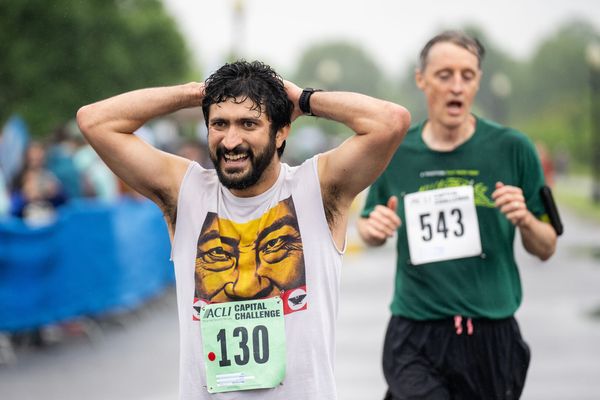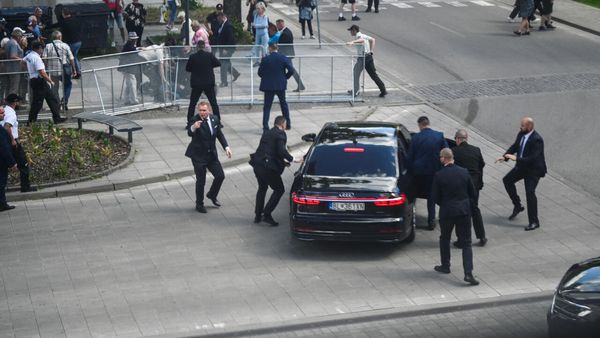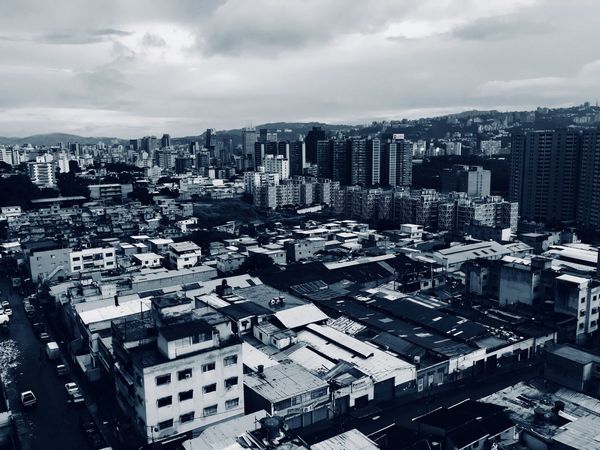
Violence between Palestinian protesters and Israeli security forces has erupted in several areas of occupied East Jerusalem and the West Bank, as the Israeli military ordered nearly half of Gaza’s population to evacuate before an expected ground offensive.
In the West Bank there were calls for marches across several big towns and cities, but in the chaos across the region, details on what under other circumstances would be described as major incidents were hard to follow. Sixteen Palestinians were shot and killed in the West Bank over the course of the day, the Palestinian health ministry said, and the violence continued into the evening.
A total of 46 Palestinians have now been killed in the West Bank in the last six days – higher than the highest ever monthly total since the UN began keeping records in 2005. The number of casualties in the entirety of October 2015, previously the worst month, was 47.
Khaled Mashal, the former leader of Hamas, called for a “global day of rage” in support of Palestinians, demanding that governments and people across the Middle East protest.
“Tribes of Jordan, sons of Jordan, brothers and sisters of Jordan … This is a moment of truth and the borders are close to you, you all know your responsibility,” he said. The Turkish news agency Anadolu reported that thousands gathered in the Jordanian capital, Amman, but did not spread further after a ban on protest near the border areas with the West Bank.
Violent exchanges between Palestinians and Israel Defence Forces (IDF), as well as Israeli settlers living in the West Bank, were reported near Hebron, Nablus and Ramallah by early Friday afternoon.
Jerusalem, often a flashpoint for violence on Fridays, the Muslim holy day, had expected an influx of worshippers for this week’s most important prayer session at the flashpoint al-Aqsa mosque compound after six days of punishing airstrikes on Gaza, a tiny Palestinian enclave home to 2.3 million people.

However, turnout was low after the Jordanian Waqf, which administers the complex’s Muslim holy sites, said that Israel had banned access to Palestinians under the age of 60, and the Beyadenu Temple Mount Movement, an extremist Jewish group, threatened to prevent Muslim worshippers from entering the area. Israeli media reported that more than 2,500 officers and volunteers were patrolling the Old City and its vicinity.
At the entrance to the al-Aqsa compound, Israeli security forces checked Muslim worshippers’ identification cards, preventing anyone under the age of 60 from entering. A small crowd formed as those hoping to pray continued to try to enter.
“I am going to pray at the mosque whatever happens. I am 54 but maybe I will pass as older … I will try. They can kill us but they can’t keep us away from here,” said Abu Jihad, a construction worker from Beit Hanina in East Jerusalem.
Clashes between Palestinians and Israeli border police were also reported inside the Old City’s Muslim quarter, and in Issawiya and Wadi Joz, Palestinian neighbourhoods to the north of the dense 1 sq km maze of narrow streets and alleyways.
In Gaza, more firepower than was used in the entirety of the five-year-long international campaign against Islamic State in Iraq and Syria has been dropped on the 12km by 41km area in the six days since Israel declared war, in the aftermath of massacres carried out by Hamas across dozens of civilian communities and army bases.
The evacuation notice issued in the early hours of Friday sent panic through civilians and aid workers already struggling under intense Israeli airstrikes and a blockade, under which no food, fuel or medical supplies is being allowed in. The UN considers the tightened siege a war crime.

In the order, the Israeli military told the estimated 1.1 million civilians in northern areas around Gaza City to flee farther south into the enclave, a narrow coastal territory. Israel’s directive charged that Hamas militants were hiding in tunnels under the city.
“This evacuation is for your own safety,” the Israeli military said, in a warning it said was sent to civilians, although some said they received no notification. An IDF spokesperson admitted in a briefing on Friday morning that it would take time for Palestinians to follow its orders to evacuate, but did not confirm a UN report that it had set a 24-hour deadline.
Israel has mobilised 360,000 reservists in what is expected to be the longest and bloodiest war in the region since Hamas seized control of Gaza in 2007. The foes have fought four wars and dozens of smaller escalations in the last 16 years.
On Friday, a trickle of Jewish worshippers made their way to the Western Wall, at the exterior of the al-Aqsa mosque complex, and the holiest accessible site in Judaism.
“I come here to pray every single day, and many people didn’t come today. They didn’t come and it’s a problem,” said Rabbi Eliazer. “I came here today at 6am, down Jaffa Street and Mamilla neighbourhood. There was no one.”

A school headteacher, Dorit Rodan, who came to Jerusalem from the West Bank settlement of Efrat to mark a cousin’s barmitzvah celebration, said she and her family were determined to celebrate the day. They posed for pictures with a photographer near the Western Wall, smiling in silk dresses.
“We debated if they’d let us do it, and if we were capable of hosting,” she said, explaining that some of her family, including her relative undertaking the barmitzvah ceremony, had flown in from Los Angeles for the ceremony. “Not all of our family came, people are afraid.” But, she added: “There are shelters here you can go to, and you have to continue life.”
A ground offensive in Gaza is likely to bring even higher casualties on both sides in brutal house-to-house fighting. Israel has mobilised an unprecedented 360,000 reservists, massed additional forces near the strip, and evacuated tens of thousands of nearby residents.
More than 1,300 Israelis were killed in the Hamas attack on Saturday and subsequent fighting on the boundary between Israel and the strip. Israeli airstrikes in response have killed more than 1,800 people in Gaza, authorities said.
Sufian Taha contributed to this report







